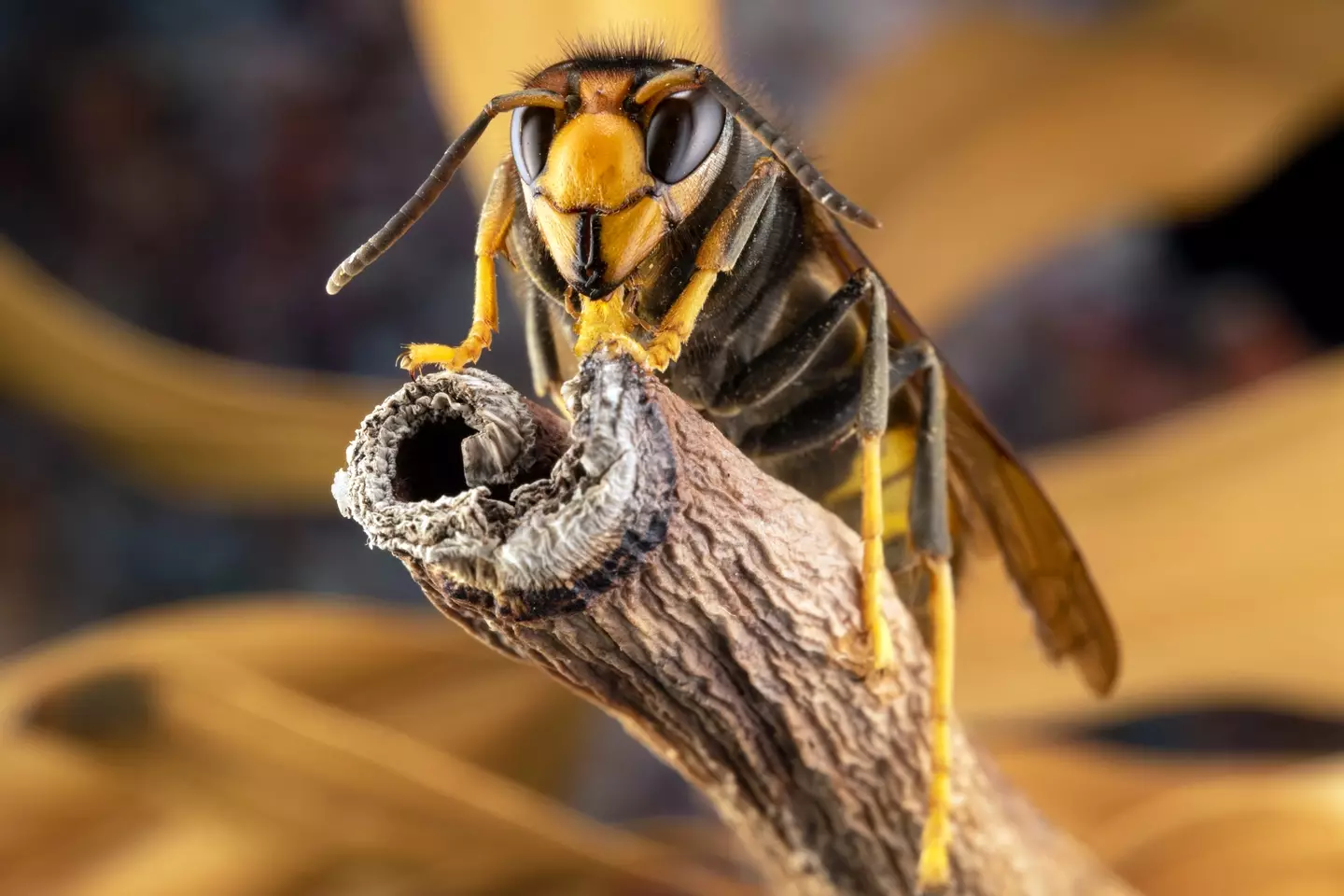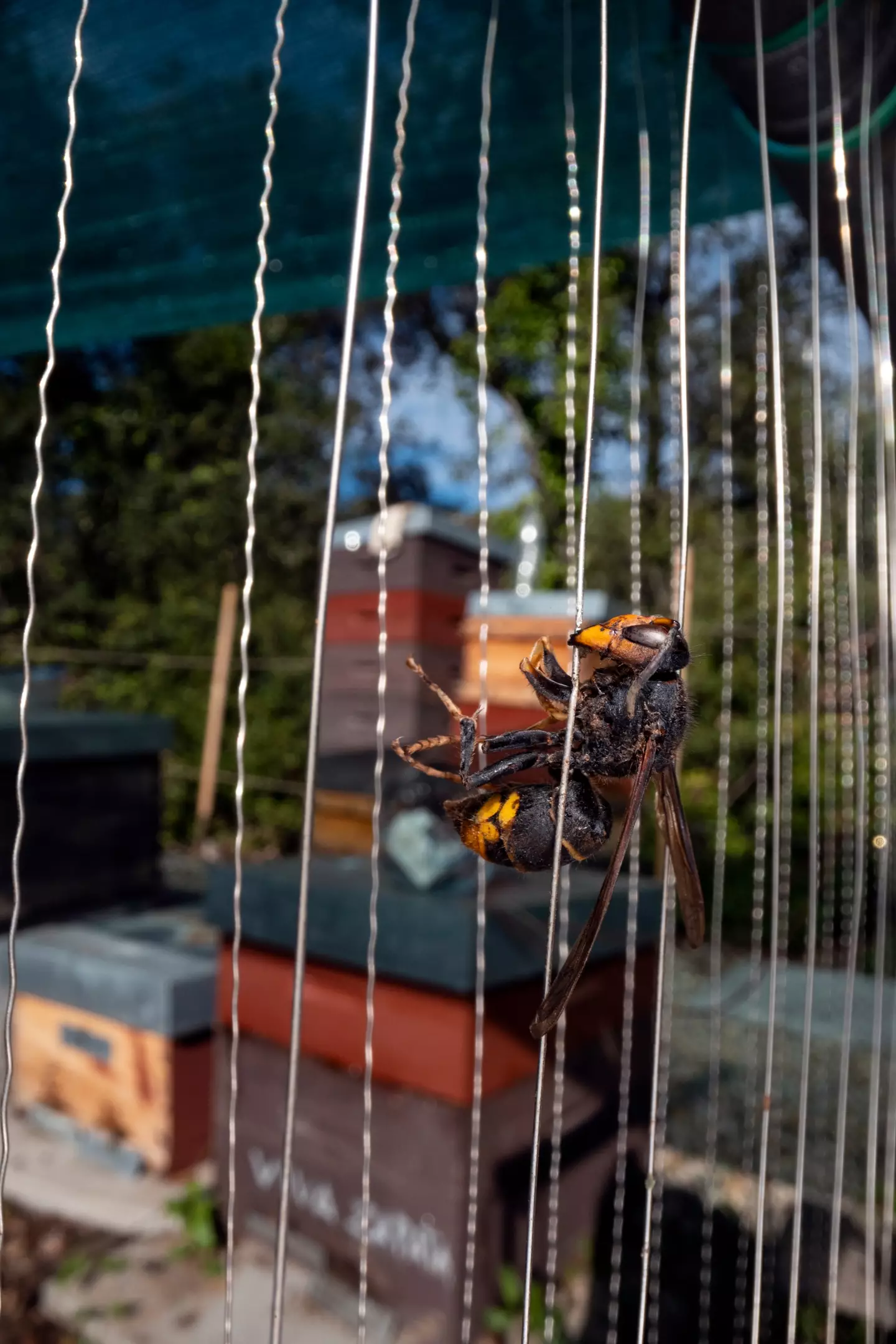.png)
Residents in the UK are being asked to stay vigilant after Asian hornets have been spotted.
While native to Southeast Asia, including China, northern India, Thailand, Malaysia, Vietnam and Lao, the Asian hornet has somehow made its way west.
According to the Natural History Museum, it is believed the hornets first ‘invaded’ France in 2004 after being brought by a cargo ship, with numerous sightings since being reported throughout western Europe.
Advert
In recent years, sightings of these hornets in the UK have not been particularly uncommon, with a total of 28 reported since 2016.

This figure actually includes a total of 14 nests, all of which have been destroyed.
A number of sightings have been confirmed in the UK so far this year, with the first coming in Newcastle upon Tyne, Northumberland in April. Others followed in Ashford and Canterbury, Kent, while two others were found in Dover.
Advert
The Department for Environment, Food and Rural Affairs says the Asian hornet is smaller than England's native hornet, though they pose no greater risk to human health than native wasps and hornets.
But while we may not be at greater risk to humans, Asian hornets do pose a greater risk to honey bees.
The National Bee Unit are currently monitoring the Dover area to try and detect further Asian hornets, with the public being warned to stay vigilant at this time.
Defra’s Chief Plant and Bee Health Officer Nicola Spence said: “By ensuring we are alerted to possible sightings as early as possible, we can take swift and effective action to stamp out the threat posed by Asian hornets.
Advert
"That’s why we are working at speed to locate and investigate any nests in the area following the confirmed sightings in Kent.

“While the Asian hornet poses no greater risk to human health than other wasps or hornets, they can cause damage to honey bee colonies and other beneficial insects.
“Please continue to look out for any Asian hornets and if you think you’ve spotted one, report your sighting through the Asian hornet app or online. Asian hornet nests will be smaller at this time in the year but we are still asking people to be vigilant.”
People are being urged to not approach an Asian hornets nest as this is where they could become aggressive.
Advert
And you certainly won't want to get stung by the hornets, as it can be pretty painful indeed thanks to their toxic venom.
According to the National Geographic, the sting of an Asian hornet can be pretty painful thanks to acetylcholine and histamine within the toxic venom.
A substance known as mastoparan, which is not found in bee venom, degrade immune cells and cause widespread inflammation.
But thankfully, you'd need to be stung by 100 of them to pose a risk to life.
Featured Image Credit: ALAIN JOCARD/AFP via Getty Images / MIGUEL RIOPA/AFP via Getty Images